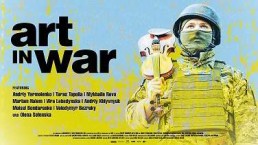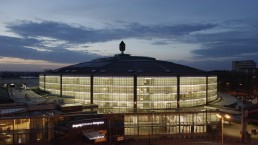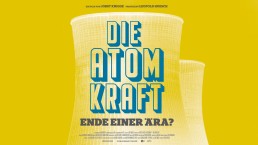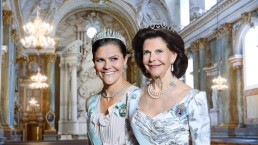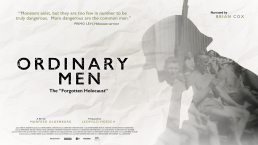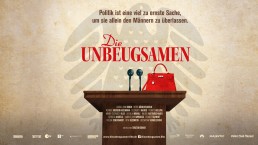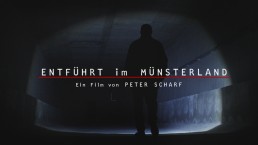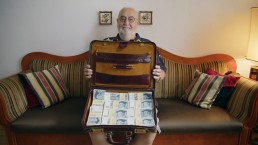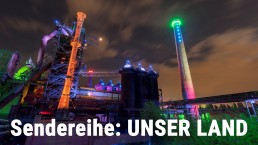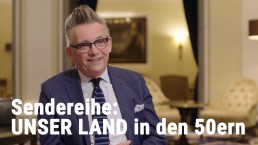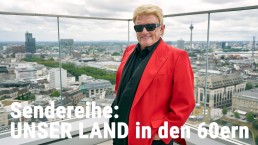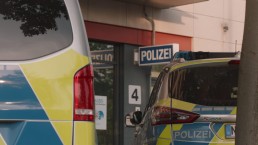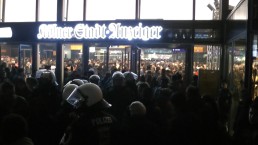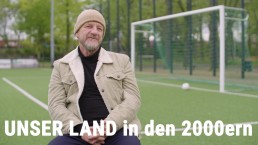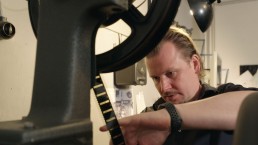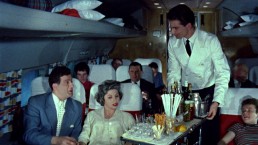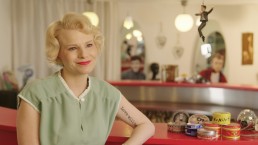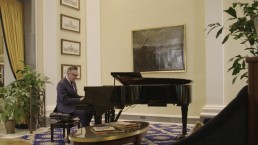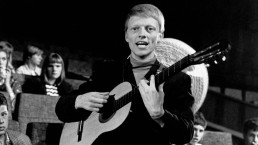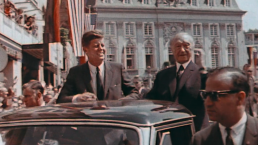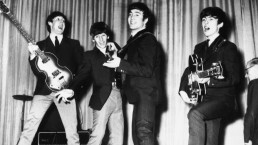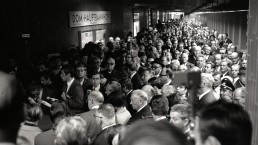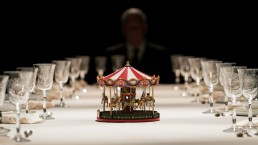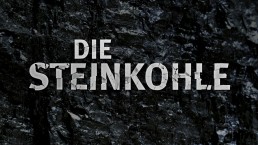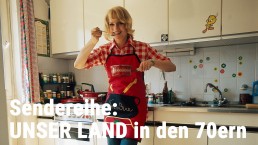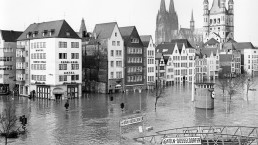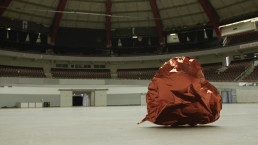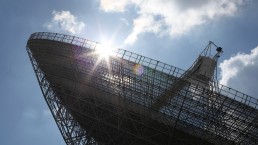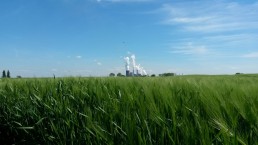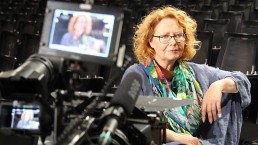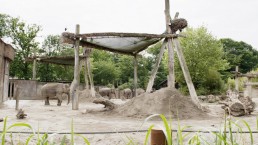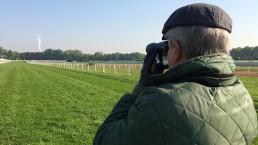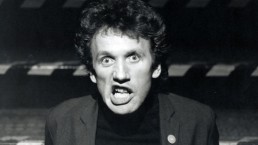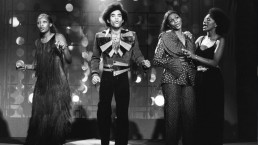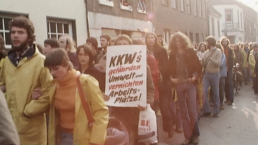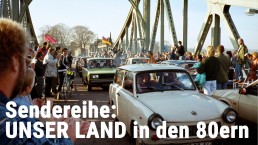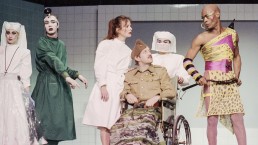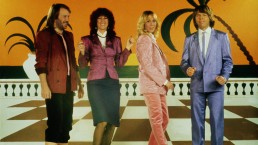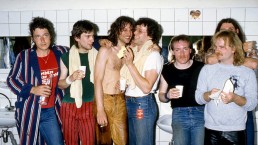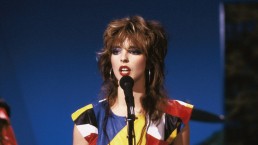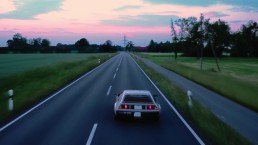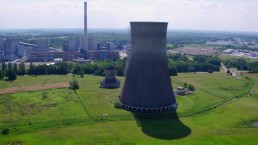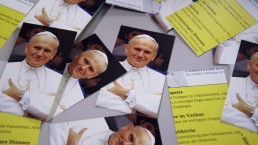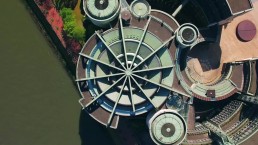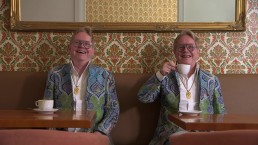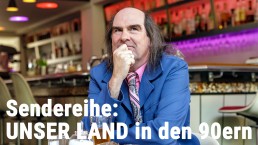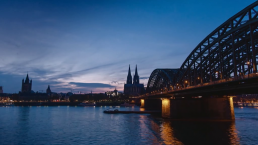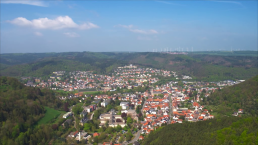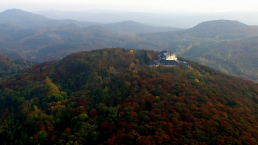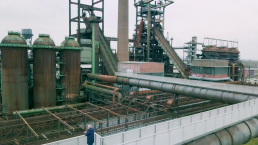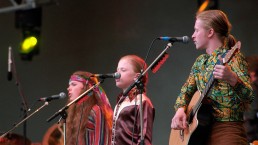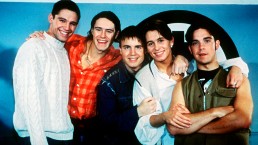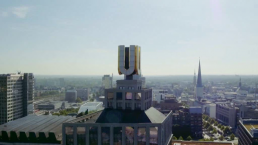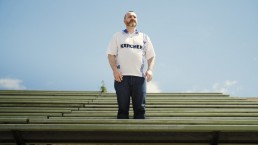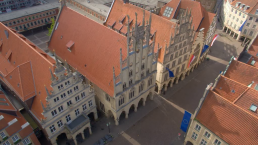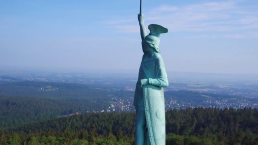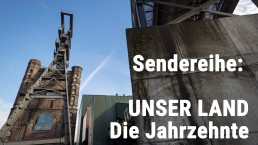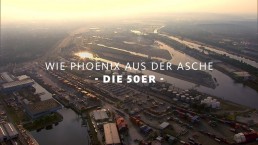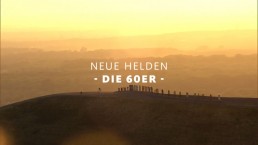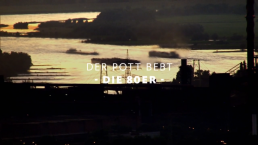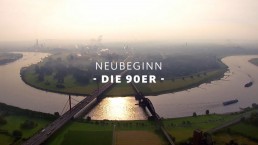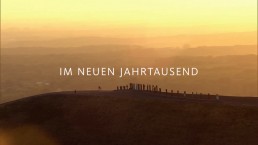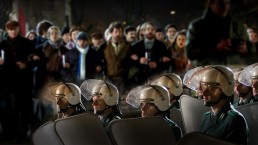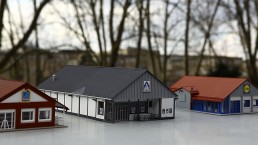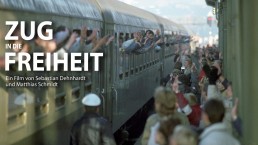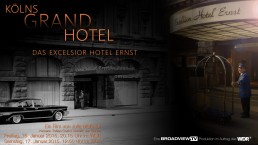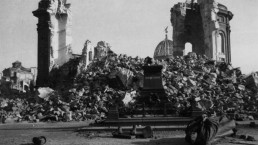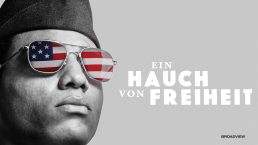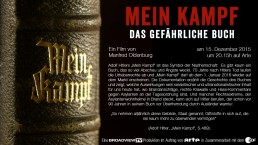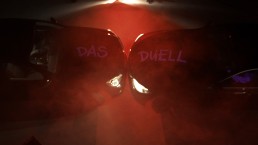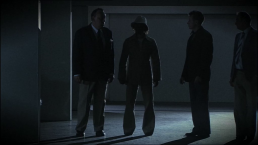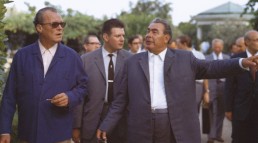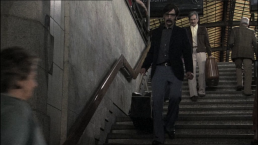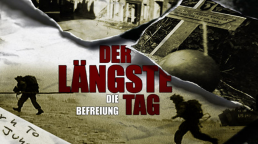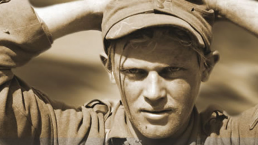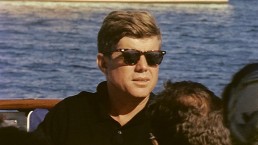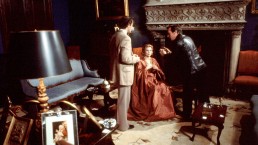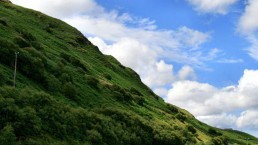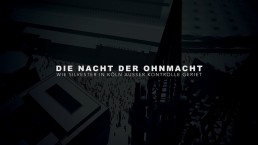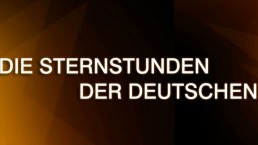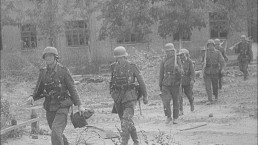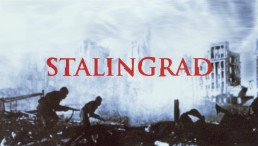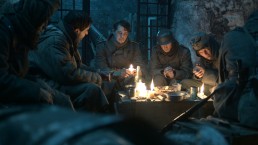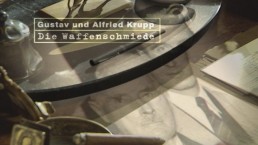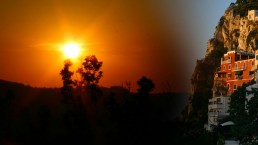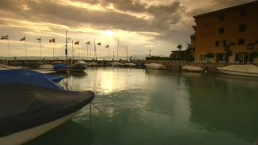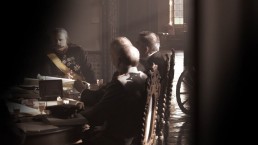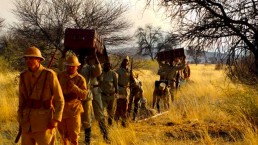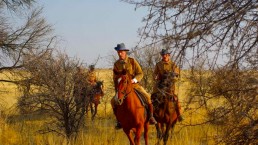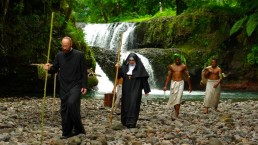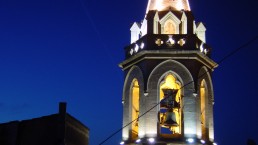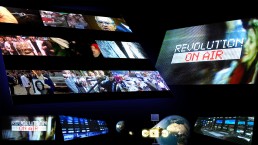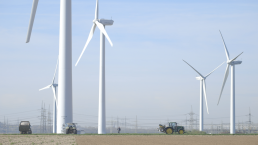
In the third part of the series "Our Land", WDR and BROADVIEW TV take a look at NRW in the 1970s. A fresh wind is blowing in North Rhine-Westphalia. Business with coal and steel is booming again, domestic energy is in demand, the unemployment rate in 1970 is a sensational 0.4 percent. There is building, founding and planning going on in this decade. People hope that the crisis was an aberration, but soon realise that it would be part of everyday life for many years to come. Soon the first major economic crisis shakes "Our Country".
But North Rhine-Westphalia is still at the top in the Federal Republic and they want to show it. The tallest house, the largest exhibition centre, the "fastest breeder" and the most motorways were built in this decade. All this can still be discovered today, although some things are quite different from what was planned.
Digging begins in the Rhineland - the open-cast lignite mine in Hambach, at that time the largest hole in the world. With almost 20 universities of applied sciences and universities of applied sciences, an educational landscape is created that is unique in the world, including the distance-learning university in Hagen, now Germany's largest university. The Foals from Mönchengladbach leave their mark on German football, and in 1974 a temple of football is opened in Dortmund with the Westfalenstadion, the largest football temple in the country. Artists from North Rhine-Westphalia such as Joseph Beuys, Kraftwerk, Marius Müller-Westernhagen and Heinrich Böll become stars who have not lost their lustre to this day.
Structural change has the Ruhr region firmly in its grip these years. Collieries die, smelters are closed, the first smog alarm shocks. But there is also hope, the new Minister President Johannes Rau promises to invest billions. Successful are the largest demonstrations the country has ever seen at the end of the 1970s: Tens of thousands come to Kalkar to demonstrate against the construction of a nuclear power plant, as they are planned and built all over Germany. Never before has there been a larger police deployment in NRW - but the demonstrators cannot be kept out. While the power plant in Kalkar is prevented, a whole new movement is formed that makes environmental policy an important issue.
The third episode of "Unser Land" is marked by the upheavals and changes of the time. It is the great stories and small anecdotes that bring a decade back to life.
First broadcast: Friday, 2 September 2016, 8:15 p.m. on WDR
OUR LAND - Stormy Times - THE 70s
In the third part of the series "Our Land", WDR and BROADVIEW TV take a look at NRW in the 1970s. A fresh wind is blowing in North Rhine-Westphalia. Business with coal and steel is booming again, domestic energy is in demand, the unemployment rate in 1970 is a sensational 0.4 percent. There is building, founding and planning going on in this decade. People hope that the crisis was an aberration, but soon realise that it would be part of everyday life for many years to come. Soon the first major economic crisis shakes "Our Country".
